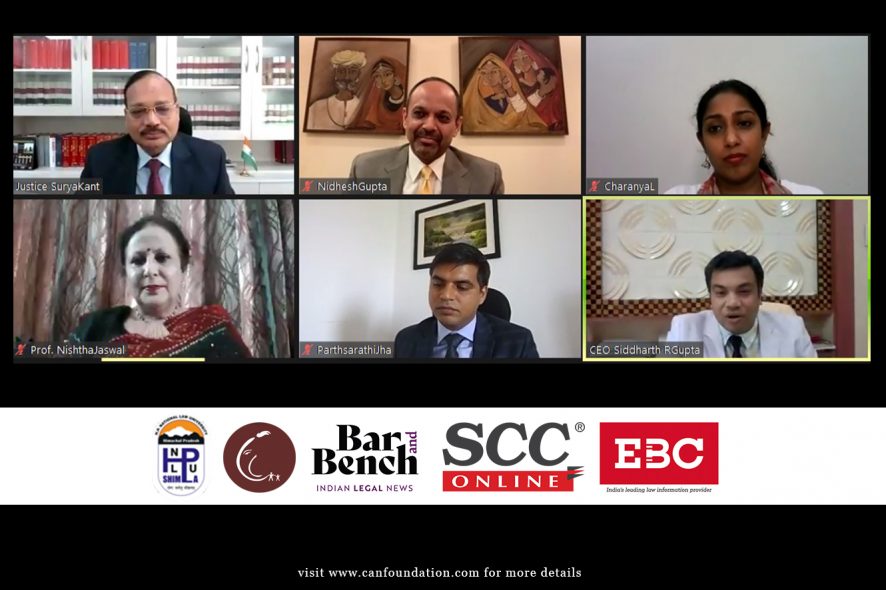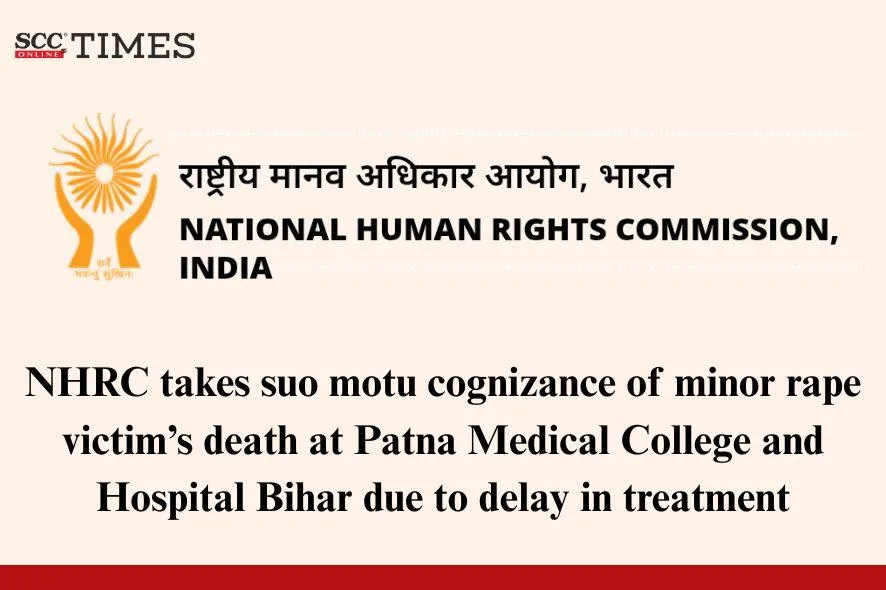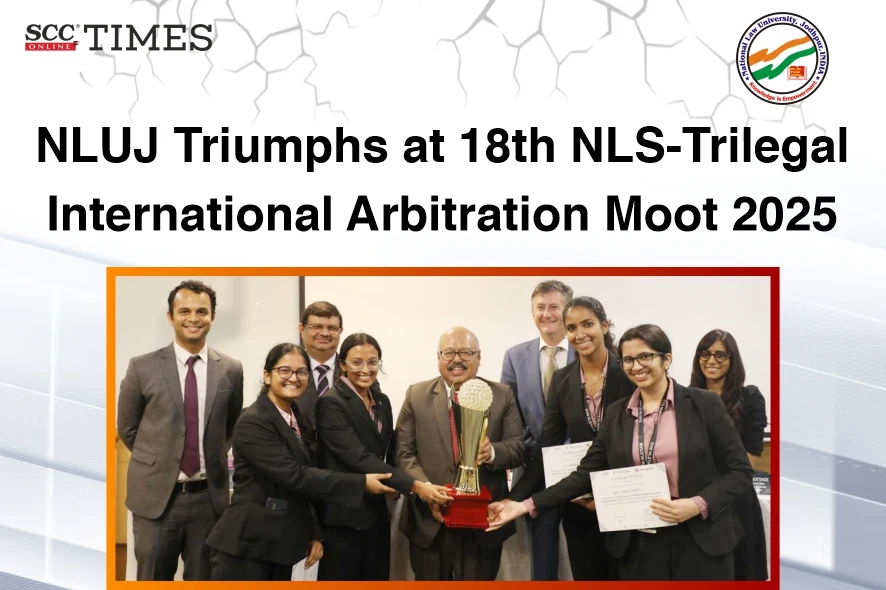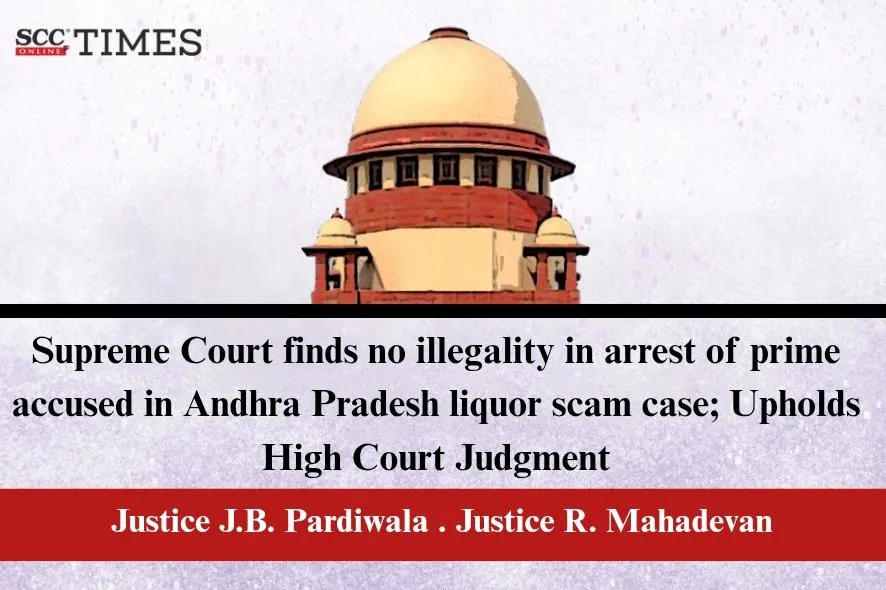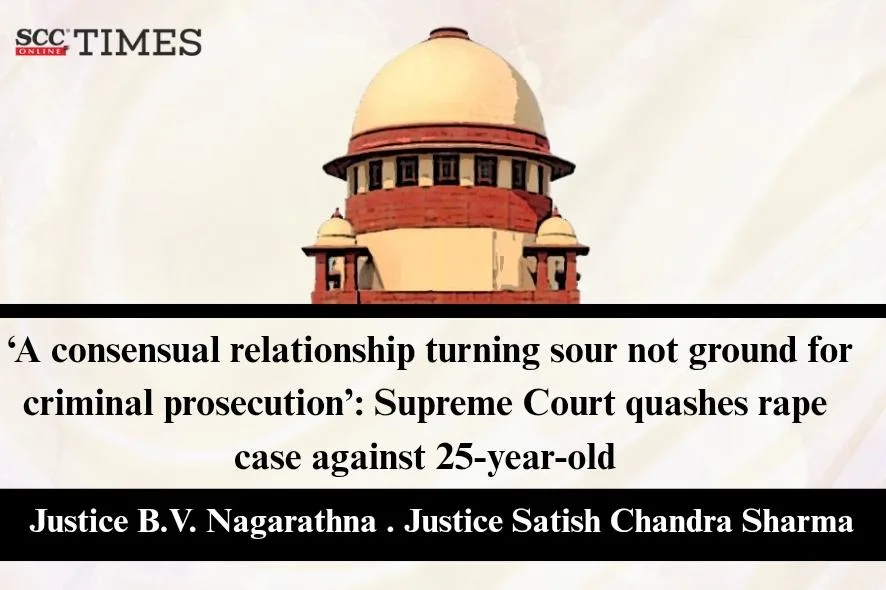CAN Foundation recently hosted a Webinar on ‘Environment & the Economy: Re-Imagining Key Concepts and Precepts’in collaboration with Himachal Pradesh National Law University, Shimla.
The panel included Mr. Justice Surya Kant, Judge, Supreme Court of India and Mr. Nidhesh Gupta, Senior Advocate, Supreme Court of India.
The welcome address was given by Ms Nishtha Jaswal, Vice-Chancellor, Himachal Pradesh National Law University. The moderators for the session included able professionals from the industry, Ms. Charanya Lakshmikumaran and Mr. Parthsarathi Jha
Ms. Charanya is a partner at Lakshmikumaran and Sridharan (L&S) and heads the firm’s High Court and Supreme Court practice at New Delhi. Mr. Parthsarathi is an Associate Partner at Economic Laws Practice. He is an alumnus of Harvard Law School and HNLU, Raipur.
The event was organized in Media Partnership with Bar and Bench, who are well known for their stellar legal reporting.
Further, the SCC Online- EBC Group served as Knowledge Partners and lent their critical support to the event. The SCC-EBC Group is well known for being the industry leaders in legal research and have revolutionized the realm of legal research by creating reliable content.
Justice Surya Kant began his Keynote Address by remarking upon one of the previous speakers and mentioned that “this issue and cause of sustainable development is an unending debate and is an issue very vital to our country’s own balanced development.”
Justice Surya Kant, asked the viewers to recollect that, “India has been addressing three decades of phenomenal economic growth but simultaneously, this prosperity has been accompanied with a decrease in pollution and ecological destruction. Not only have we lost the last parts so far, earlier distinguished forests and landscapes to rampant urbanization and mining, but water bodies and rivers are also nothing short of toxic and devoid of aquatic life. The presence of the population exposing our economy too has strained our economy and natural resources like water and minerals.”
“With human lives pausing due to the COVID-19 pandemic, viral photos show that nature is fighting back. With the flora returning and fauna thriving, it is evident that the pitiable state of global ecology is not a state of our geographical inheritance.”
Justice Surya Kant further went on to show that the Constitutional Courts now read Article 48A with Article 21 and hence 48A is not just a DPSP. He adds, “the constitutional courts have grown discernibly confident while saying that environment rights have emerged from the penumbra of part three of the constitution.”
He further, also touched upon the concepts of inter and intra generational equity. He also discussed the line of Katha case which is an ingredient of pan masala and said “the present generation has no right to exploit every natural resource and leave nothing for the upcoming generations.”
He subsequently stated that the public trust doctrine is part of the law of the land therefore the state could not transfer the rights of public property to private parties if it widely interferes with the rights of the people.
Justice Surya Kant also expressed his concern on geographical difficulty for the environmentally aggrieved person to report cases in NGT rather than in their own state High Courts & commented on the efficacy of such tribunals due to their specific geographical concentration and limited number.
He also added that “speaking for myself, my view is that instead of furthering the commitment to justice, many Tribunals are found lacking the necessary attributes of Judicial Fora, independence from the Executive and the desired Judicial experience.”
Justice Surya Kant made further remarks that, while moving forward, environmental issues will be increasingly transnational. They will require international cooperation. But they also raise interesting questions for Indian Federalism like say “the way in which the action of one state affects the environment in the another.”
He concluded by saying that “tragedy of commons is that the Indian population has not cared much about sustainability and pollution.Such ignorance can turn fatal and irreversible. Poor implementation is not due to lack of legislations, but is result of careless approach and lack of commitment of the Executive. The time is there to rise for the Indian people and to demand accountability from different stakeholders”
The meeting ended with a vote of thanks to Mr. Gupta and everybody involved in the Session.


